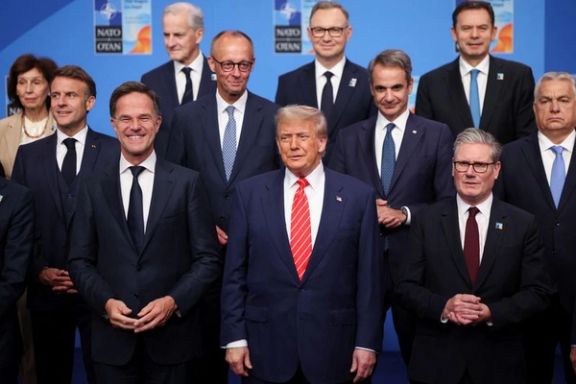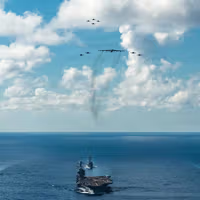"The reports of the IAEA Director General speak for themselves, as they highlight Iran’s ongoing violations of its key obligations. This particularly concerns the still-unclarified whereabouts of the stocks of highly enriched uranium," the spokesperson said.
Last week, in a confidential report cited by Reuters, the IAEA said Iran has yet to allow UN inspectors to visit nuclear sites hit by Israeli and US airstrikes in June, adding that the verification of Tehran’s enriched uranium is “long overdue.”
“The Agency’s lack of access to this nuclear material in Iran for five months means that its verification is long overdue,” the IAEA said in the report to member states.
Under its obligations as a party to the Nuclear Non-Proliferation Treaty, Iran must submit a detailed report on the status of the bombed facilities “without delay,” but has yet to do so, the IAEA added. Only after such a report is received can inspectors return to the damaged sites.
The spokesperson added that the E3 — Germany, France and the United Kingdom — have repeatedly raised their concerns on Iran's violations publicly and they were the reason the troika triggered the so-called snapback of sanctions.
The E3 triggered the snapback mechanism under the UN Security Council Resolution 2231 which led to the restoration of UN sanctions on Iran in late September.
European states are expected to discuss a draft resolution critical of Iran at the IAEA Board of Governors meeting later this week.
According to the spokesperson, no specific agenda item is planned on the implementation of UN Security Council Resolution 2231, but Berlin said the issue will still be addressed based on reporting from the IAEA director general and the UN resolutions that re-entered into force following the snapback mechanism.
European countries and the United States have called for renewed talks between Washington and Tehran, but Iran says it will not renounce domestic uranium enrichment or discuss its missile program and its support for regional armed groups.
"Germany, together with its E3 partners France and the United Kingdom, continues to advocate for a diplomatic solution to the Iranian nuclear program," the spokesperson added.
Earlier this month, IAEA chief Rafael Grossi said although the June attacks on Iran's Natanz, Isfahan and Fordow nuclear sites “severely damaged” the country's nuclear program, the country retains the knowledge and material “to manufacture a few nuclear weapons."
Before the attacks, inspectors had verified about 440 kilograms of uranium enriched to 60 percent purity—enough, if further refined, for roughly 10 nuclear weapons under IAEA criteria.
Iranian officials, including Iran's foreign minister Abbas Araghchi, have repeatedly said the enriched uranium is buried "under rubble" left from the June strikes.
Tehran denies seeking a bomb but Western powers and Israel doubt its intentions.









